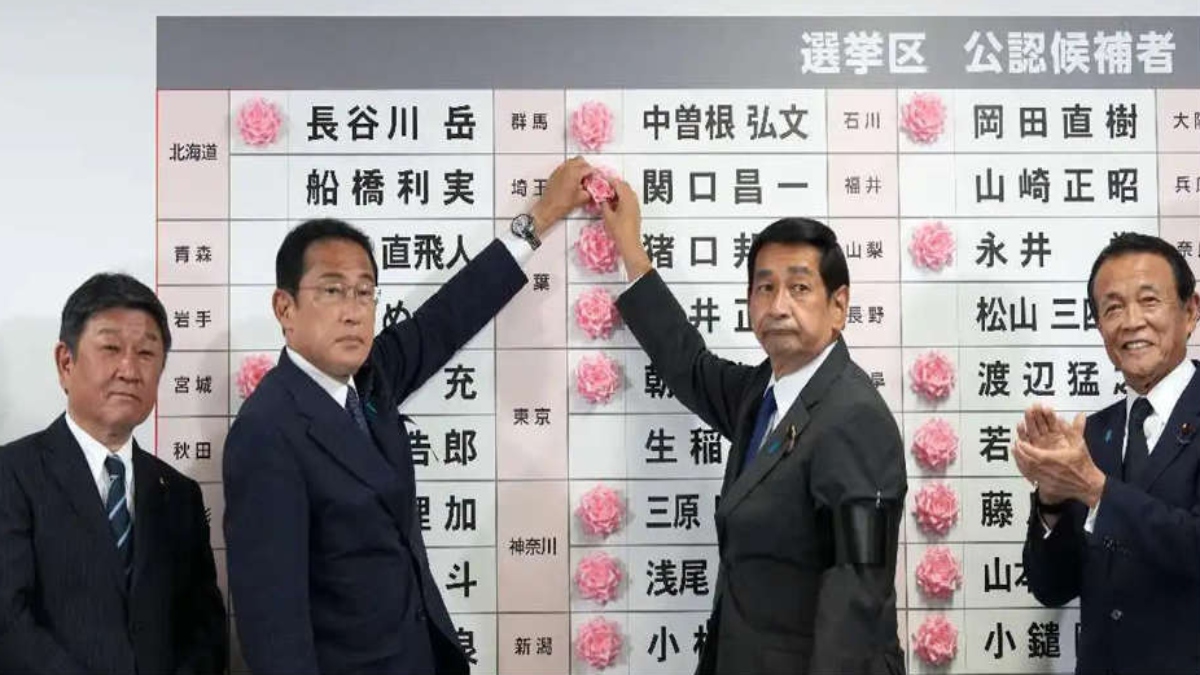


In an election held just two days after the assassination of former Japanese Prime Minister Shinzo Abe, the ruling Liberal Democratic Party (LDP)-Komeito coalition secured 76 seats and retained the majority in the Upper House elections, local media reported.
Abe was gunned down in Nara city in western Japan on Friday, while he was delivering a campaign speech. Japanese Prime Minister Fumio Kishida and other LDP executives appeared before the media on Sunday night, wearing black ties and dresses along with mourning ribbons, holding a moment of silence for Abe, The Japan Times reported.
Addressing a press conference, the Japanese PM said, “Violence threatened the electoral process, the very foundation of our democracy.”
“I was determined to go through with this election at all costs,” he added.
According to the publication, after the sweeping win, Kishida does not need to go to the polls for three years, giving him a free hand to advance his policy agenda.
Kishida now faces questions like where he will direct his political capital: his flagship “new capitalism” fiscal initiatives aimed at the redistribution of wealth; diplomacy and national security; or toward inflation and other economic issues, which emerged as top voter concerns ahead of the election. “I am determined to achieve results as part of my ‘new capitalism’ economic model, which is aimed primarily at revitalizing the economy,” Kishida said. “At the same time, I will take a step-by-step approach to continue our work on diplomacy, security, and constitutional revision,” he added.
Looking at the ongoing war in Ukraine and its economic consequences, the parties’ main plan was to address rising prices and boost the economy. Another key point was whether pro-constitutional revision forces would gain a supermajority — two-thirds of the seats in the chamber — enabling them to initiate Japan’s first referendum on the issue.
This year, 52.05% of voters turned to the Upper House election, which is higher than the 2019 Upper House election but the second-lowest on record.